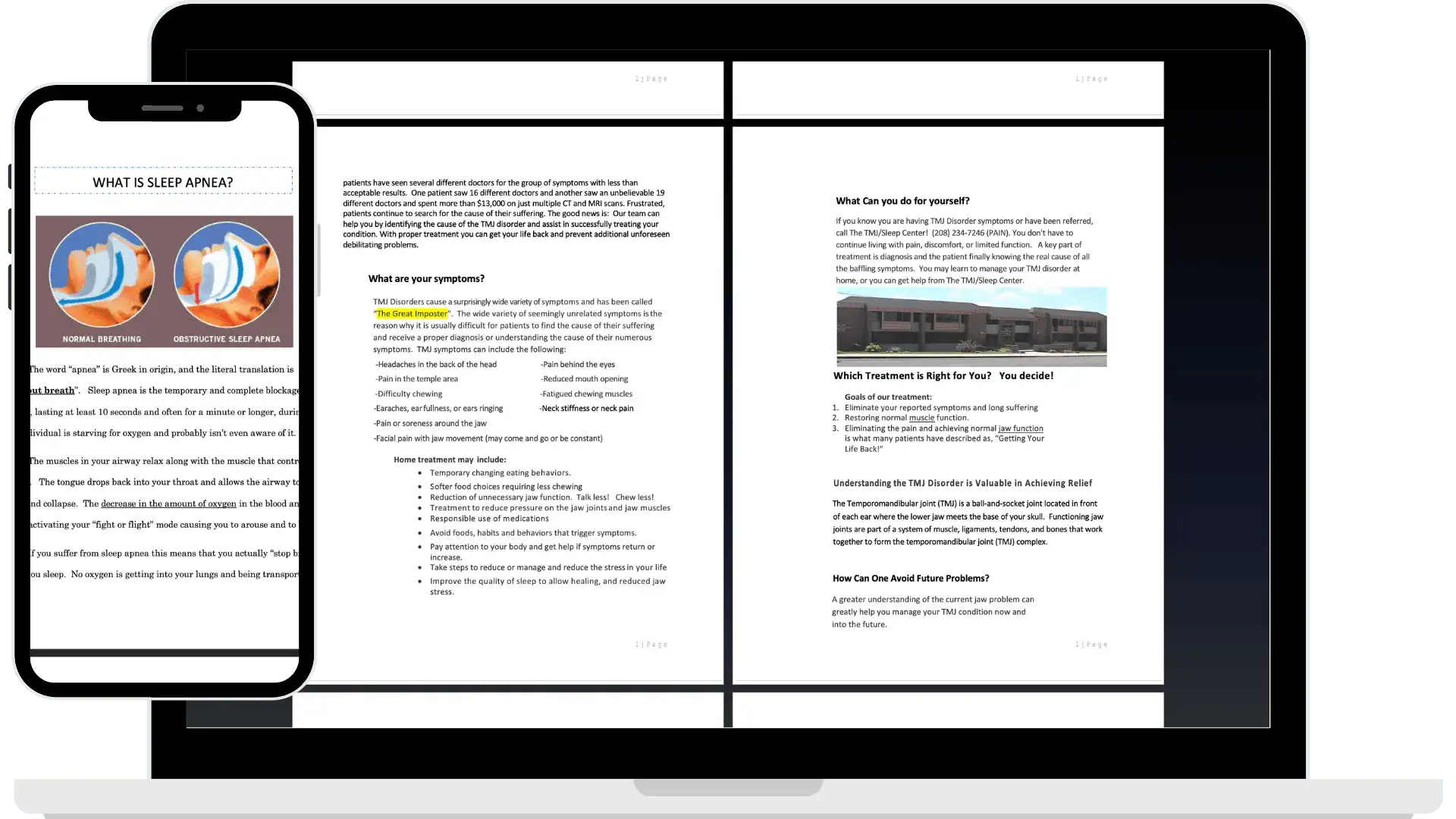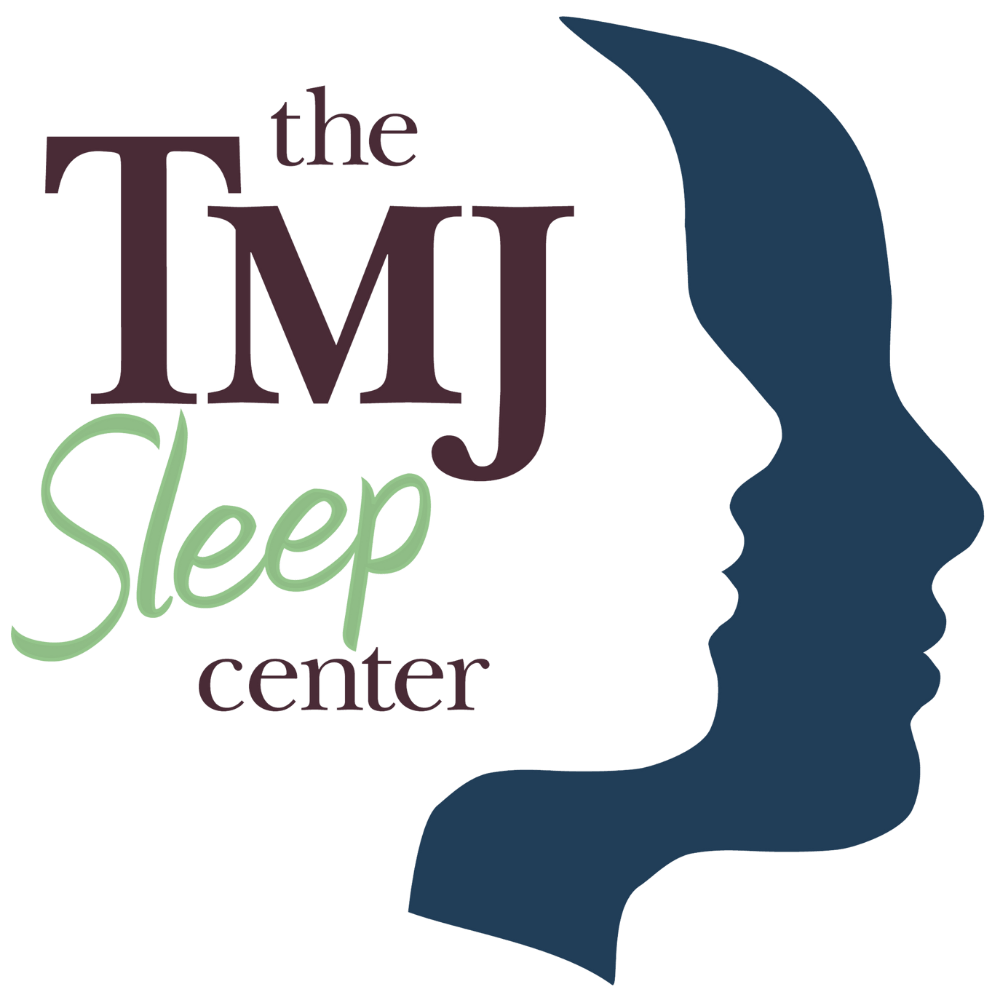The Dangers of Sleep Apnea
Turn to the trusted doctors at The TMJ Sleep Center to help you get rid of sleep apnea. Individuals suffering from sleep apnea stop breathing during their sleep, causing the oxygen level in their blood to drop down to dangerous levels that could possibly lead to death.
There are between 50 and 70 million Americans who suffer from sleep disorders, with an estimated 22 million of them having sleep apnea. Sleep apnea is a syndrome that affects sleep, causing people to suddenly stop and start breathing while they are asleep. Sleep apnea is a dangerous medical problem that, if untreated, may result in various health issues since it can cause oxygen deprivation over an extended period of time.
Sleep apnea causes you to feel exhausted as soon as you wake up every morning. Your body and emotional health are put under stress due to persistent fatigue, which can result in a vicious cycle of daytime sleepiness, exhaustion, headaches, and possibly other major medical issues, including diabetes, heart disease, and stroke.
Unfortunately, a lot of people ignore their sleep apnea symptoms or never get treatment because they don’t know where to start. Some people worry that using a CPAP machine is the only approach to address a sleeping condition. Speak with a doctor for sleep apnea before attempting to treat your disorder. At our sleep apnea clinic, we have the best doctor. Come in if you suspect you may suffer from sleep apnea.
Thankfully, it isn’t always the case. But being able to recognize the signs of sleep apnea in a loved one or yourself is the first step to receiving treatment and getting a better night’s sleep. The TMJ Sleep Center offers severe and mild sleep apnea treatment.
Call for an appointment with a sleep apnea specialist or visit us today. Walk-ins are welcome. Ask about your free consultation, free estimate, and free patient consumer guide.
We work with all insurance companies, too.
Types of Sleep Apnea
There are three different types of sleep apnea. There is a misconception that all cases are comparable.
Obstructive sleep apnea (OSA) occurs when the throat muscles relax and temporarily restrict the airway. When the muscles and tissues in the throat are relaxed, they expand, including the soft palate and tongue. This swelling closes off the airway, making breathing impossible.
Central sleep apnea (CSA) causes the patient to periodically stop and start breathing while they sleep. It manifests somewhat like OSA. Treatments differ due to the highly varied nature of CSA’s underlying cause.
OSA combined with CSA is known as mixed sleep apnea. When a person with mixed sleep apnea sleeps, their cycle begins with central sleep apnea symptoms and concludes with ones that are more related to obstructive sleep apnea. For the type of sleep apnea that begins their sleep cycle, those with mixed sleep apnea are typically treated.
Typical Signs of Sleep Apnea
Due to excessive daytime sleepiness, sleep apnea is a dangerous disorder that might have negative effects, including work-related or vehicular accidents. While you might not even be aware that you’re waking up in the middle of the night, a sleeping issue makes your body repeat a cycle of sleep, wakefulness, and sleep that deprives it of restful, restorative sleep.
Depending on the time of day or night, there may be other indicators of sleep apnea. For instance, if you snore, gasp for air, or briefly stop breathing, your sleep partner may be more aware of your symptoms at night. You might not even be aware that there is an issue until you wake up with a headache or start to nod off on the way home from work. Everything in your life, including your mood, blood pressure, and more significant health effects, can be affected by a sleeping condition.
How to Determine if You Have Sleep Apnea
Perform a self-evaluation to see whether you have any of the following signs of sleep apnea before booking a sleep study or seeing a doctor:
A restricted airway is the cause of some sleeping disorders, which results in the loud side effect of snoring.
Drying effects of mouth breathing might cause throat pain and soreness when you snore.
Not Sleeping Through the Night
Do you frequently get up during the night for no apparent reason or to use the restroom? Do you often feel drowsy during the day? It can be due to sleep apnea.
Headaches
Migraines and common headaches can be brought on by insufficient sleep.
Lack of Concentration
Being sleep-deprived can leave you mentally exhausted, making daily tasks harder than they should be.
Irritability
This is a common symptom of sleep disorders, making you feel grumpy or irritable.
Indigestion
You might not even be aware of how frequently obtaining a bad night’s sleep is linked to your medical concerns, including your digestive system.
High Blood Pressure
Your sleep may be a contributing factor if you have high blood pressure, use medication for it, or find it difficult to control your blood pressure despite diet and exercise.
Sleep Apnea Causes
Sleep apnea is caused by airway obstruction or the brain’s failure to send signals to breathe correctly. It lasts for at least 10 seconds and often for a minute or longer during sleep.
The relaxation of the airway muscles results in the tongue dropping back into your throat and allowing the airway to close and collapse. The lack of oxygen activates your fight or flight mode, causing you to wake up and breathe. Snoring and lack of energy are some of the observable symptoms of sleep apnea.
Lack of adequate oxygen levels in your bloodstream causes the brain cells to die off. Your heart must work harder to circulate the reduced amount of oxygen to the brain. This increases your blood pressure and puts your blood vessels under a lot of stress. Increased stress damages your blood vessels, resulting in a ruptured vessel and increasing the possibility of a stroke.
Treating Sleep Apnea
There is no “cure” for sleep apnea; it is a chronic disorder. Treatment and management are necessary. There are a variety of sleep apnea treatment options available, depending on the underlying cause of your sleeping condition.
Thankfully, there are solutions for treating sleep apnea, including bespoke mouth appliance therapy with a mandibular advancement tool. By keeping the soft tissues from collapsing, oral sleep appliances position your jaw to open the airway. A CPAP machine is an additional option.
Reviews
Get a Free Sleep Apnea Consultation With an Expert
Call today!
(208) 242-3935
Related Sleep Apnea Services

“Dr. Romriell and his staff are wonderful! I’m so grateful!”
- Celeste E.
Learn More About
The TMJ Sleep Center
Located at 1777 E Clark St, Pocatello, ID, We specialize in the treatment of TMJ disorders, migraine headaches, and sleep apnea treatments. Work with all insurance. Complimentary consultations. Walk-ins welcome. Call today for an appointment or visit us.
Business Hours
- Mon - Tue
- -
- Wednesday
- -
- Thursday
- -
- Fri - Sun
- Closed


Share On: